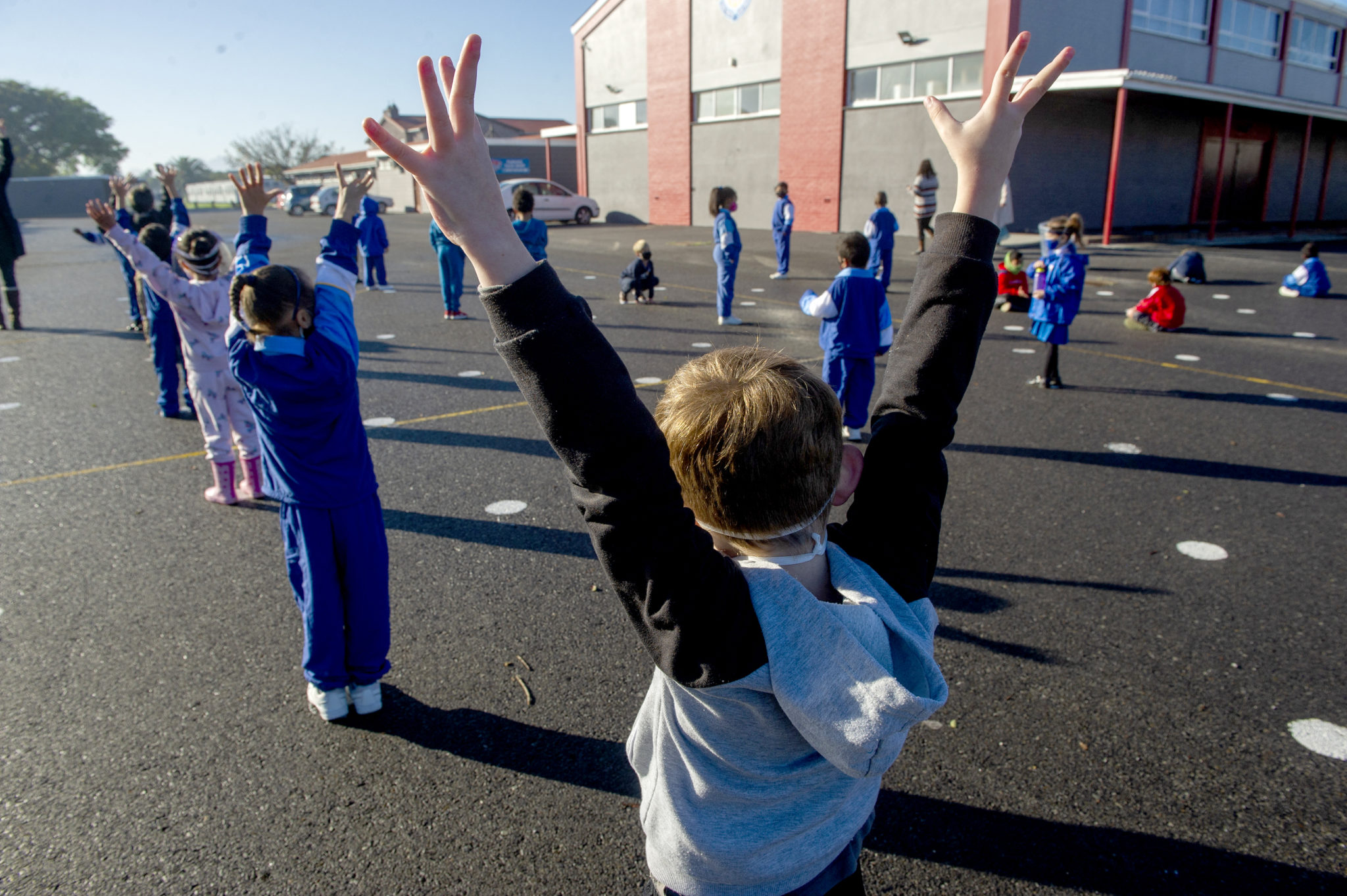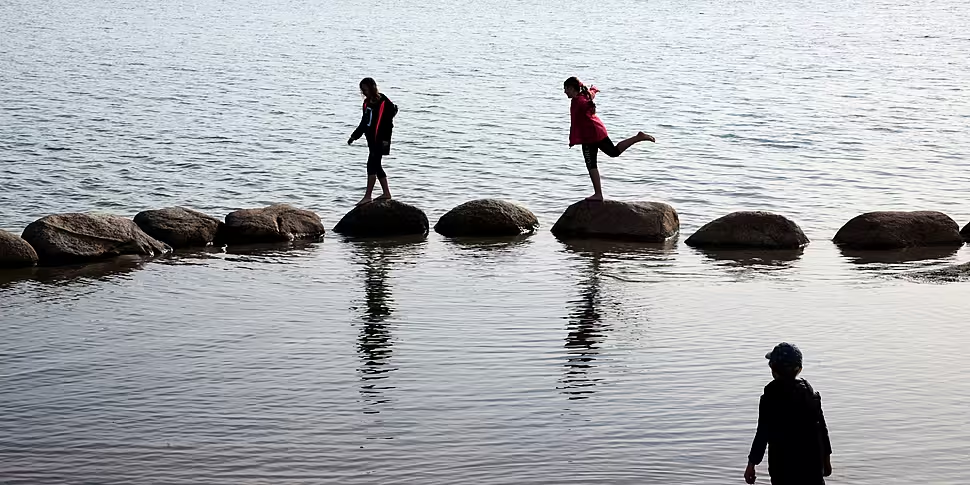Ireland’s children will develop chronic diseases like diabetes and heart disease at a much earlier age unless urgent action is taken to increase their physical activity.
A new Lancet study has found that 80% of adolescents around the world are physically inactive and not meeting the World Health Organisation’s guidelines of at least one hour’s activity per day.
The latest Lancet ‘Physical Activity’ study also warns that 60% of European 11 to 15-year-olds watch more than two hours television every day and 40% never walk to school.
On Newstalk Breakfast this morning, study lead Dr Esther van Sluijs said it is essential that countries do more to support activity-friendly school environments and support schools to introduce more exercised-based learning.
She said parents and peers must also work to encourage children to exercise more outside of school – especially in towns and cities.
 Four-year-olds Lily Ranalow and Margaret Darcy playing tennis at Herbert Park council playgrounds, 26-04-2021. Image Sasko Lazarov/RollingNews
Four-year-olds Lily Ranalow and Margaret Darcy playing tennis at Herbert Park council playgrounds, 26-04-2021. Image Sasko Lazarov/RollingNewsAlso on the show, Catherine Woods, Professor of Physical Activity and Health at the University of Limerick said failure to act now will lead to serious problems for our children as they grow up.
“If we don’t have action on this, the children of today will develop diseases like heart disease and like Type Two diabetes much earlier than their parents did,” she said.
“We will then be managing chronic disease for a much longer period of time.
“So, this is preventative but equally it is about optimal health. These children will have limited optimal health and therefor they may not have the enriching childhood that they would otherwise have.”
 Children stretch during breaktime at a school in Cape Town South Africa, 06-07-2020. Image: RealTime Images/ABACA/ABACA/PA Images
Children stretch during breaktime at a school in Cape Town South Africa, 06-07-2020. Image: RealTime Images/ABACA/ABACA/PA ImagesProfessor Woods said this third edition of the Physical Activity report really stresses the lack of progress that has been made on the issue in recent years.
“They are really calling to Governments worldwide and our own Government to really investigate the lack of progress in addressing the physical inactivity pandemic we are experiencing at the moment,” she said.
She said a collaborative effort is needed across Government departments to really stress the benefits of physical activity.
“You start with the individual as a child and work with the child and they have to have the confidence to be involved with a physical activity that involves opportunities they think they will enjoy and want to engage in,” she said.
“That requires good instruction and good facilities so then you are moving beyond the individual into the community setting – schools, sports clubs, gyms and physical infrastructure so children can walk and cycle to these opportunities as opposed to being driven by parents.
“Then you need parents to come in there, you need teachers to come in there.
“So, if you think about it like concentric circles or spheres of influence, at the heart of it is the child and then the parents and the friends, then the schools and the organisations they go to, then the community and then the policy and they all have a role to play.”









